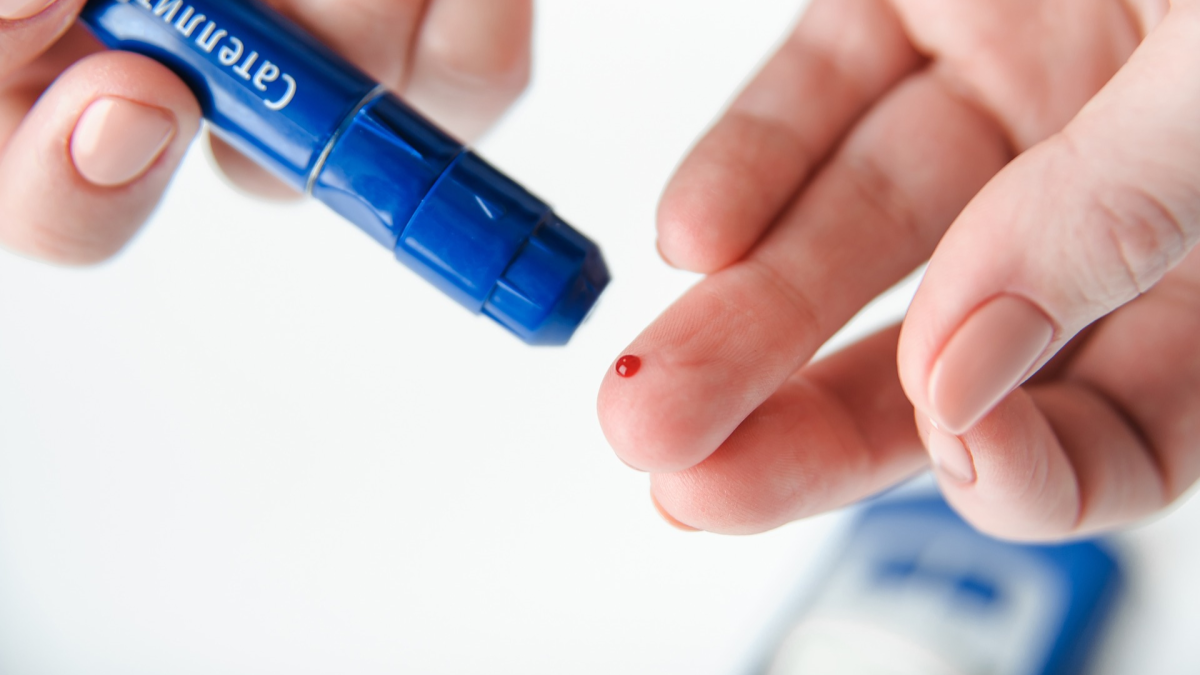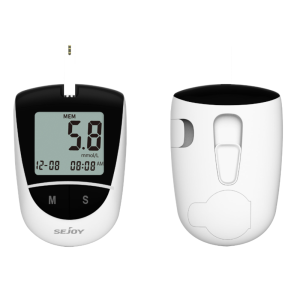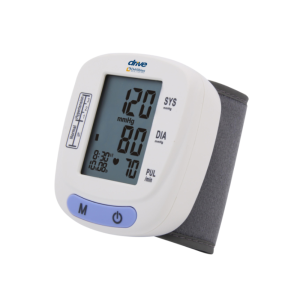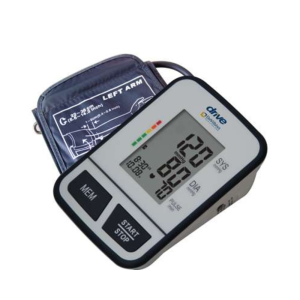Fact Checked
Intus Healthcare’s writers, customer service team, and sleep experts review and ensure this information is accurate.
Last updated on March 5th, 2024 at 02:52 pm
Research shows a clear association between Type 2 Diabetes and Obstructive Sleep Apnoea (OSA). Those with Type 2 Diabetes are more at risk of developing Sleep Apnoea, and vice versa. This article will explain the link between Sleep Apnoea and diabetes and offer ways to help.
Table of Contents
Can Sleep Apnoea Cause Diabetes?
Untreated Sleep Apnoea is associated with an inability to regulate blood sugar levels and blood pressure. This means those with Sleep Apnoea are more likely to develop Type 2 Diabetes than those without (1). With more than half of type 2 diabetes patients suffering from OSA. (2)
People who regularly snore and have Sleep Apnoea are also linked to Metabolic Syndrome alterations. This is a combination of conditions such as obesity, hypertension and Type 2 Diabetes.
Sleep Apnoea occurs when the muscles in the throat relax, causing airway blockages. This can lead to breathing pauses and reduced blood oxygen levels. The body responds to these pauses by releasing stress hormones, such as adrenaline. The stress hormones can increase insulin resistance and contribute to the development of diabetes.
Can Diabetes Cause Sleep Apnoea?
Yes, diabetes can contribute to the development of Sleep Apnoea. Diabetes can affect sleep in various ways, one being its impact on weight.
People with diabetes often weigh more, carrying excess fat around the neck area. Excess fatty tissue around the neck increases the risk of sleep disturbances as it makes it harder to breathe. Diabetes can also lead to nerve damage in muscles involved in breathing, which can also contribute to Sleep Apnoea.
The fluctuations in blood sugar levels can also disrupt sleep patterns, irritating the condition. Treating diabetes effectively through lifestyle adjustments and medication can help reduce the risk and severity of it.
What is diabetes?
Diabetes is a chronic medical condition in which the body cannot properly regulate blood sugar levels.
Type 1 Diabetes occurs when the immune system attacks and destroys cells in the pancreas. These cells are responsible for producing insulin, a hormone that regulates blood sugar levels. People with Type 1 Diabetes must use insulin injections or an insulin pump to control their blood sugar levels.
Type 2 Diabetes is the most common form of diabetes. It occurs when the body has trouble using insulin or can’t make enough of it. In type 2 diabetes, sugar builds up in the blood instead of cells using it for energy. This can lead to various health problems if not managed properly
Lifestyle changes, such as eating a healthy diet and exercising regularly, can often help manage blood sugar levels. Of the 4.3 million adults in the UK with Diabetes, 90% have Type 2 diabetes (3).
Symptoms of diabetes
The symptoms of Diabetes can vary from person to person, depending on the severity of the condition. Here are some common symptoms:
- Excessive thirst
- Fatigue
- Frequent urination
- Unexplained weight loss
- Increased hunger
- Slow healing wounds
- Dry skin
- Blurred vision
- Tingling or numbness

Monitoring Blood Sugar Levels
If you suffer from Diabetes, regular monitoring of your blood sugar levels can help you manage the condition. Our range of quality blood glucose monitors are perfect for using at home or on the go. Each device is supplied in a compact carry case so you can routinely check and record your blood sugar levels.
How do you know if I have Sleep Apnoea?
If you have Sleep Apnoea symptoms, contact your doctor. If they think you may have Sleep Apnoea, they may refer you to a sleep clinic, where you will undergo a simple sleep study. Please note that current waiting times for a sleep test at a sleep clinic through the NHS may vary from two months to two years.
We understand that waiting for a test can be stressful and make solving your symptoms harder. If you want confirmation sooner, you can take an In-Home Sleep Test with us.
An In-Home Sleep Test monitors key indicators to assess if the condition occurs. Once completed, you can receive accurate results within 7-10 working days. If your results come back positive for Sleep Apnoea, our experienced Sleep Clinicians can advise you on treatment.
Treating Sleep Apnoea and Diabetes
The process of treating these conditions is similar. Treatment often involves lifestyle changes, such as weight loss, quitting smoking, and avoiding alcohol and sedatives before bedtime.
If you have Type 2 Diabetes and unconfirmed Sleep Apnoea, it could be harder to manage your diabetes. Equally, if you already have Sleep Apnoea confirmed, the likelihood of developing Type 2 diabetes is much higher.
Monitoring Blood Sugar Levels
If you have Diabetes, regularly monitoring your blood sugar levels can help you manage the condition. Our range of quality blood glucose monitors are perfect for use at home or on the go. Each device is supplied in a compact carry case to check and record your blood sugar levels anywhere.
Diabetes and CPAP Therapy
Treating Sleep Apnoea with CPAP therapy can help support the treatment of diabetes.
Those with both conditions are at risk of developing heart disease and kidney disease. A CPAP device lowers these risks and can help maintain the correct blood sugar levels (glycaemic control) (4).
A CPAP device improves sleep, supports correct blood sugar (glucose) levels, and gives people more energy for daily exercise. If you have Sleep Apnoea and use CPAP therapy, you will reduce the risk of developing Type 2 Diabetes.

Long-Term Effects
Untreated diabetes can lead to serious health complications, such as heart disease, nerve damage, kidney damage and eye problems.
If Sleep Apnoea is untreated, oxygen deprivation can lead to the following:
- High blood pressure
- Insulin resistance (a hormone in your pancreas that helps with digestion and uses blood sugar as energy)
- Glucose intolerance (blood sugar that your body produces from food and drinks to create energy)
- A rise in blood sugar
- Higher chance of heart complications
- Memory and concentration problems
FAQs
How does the severity of diabetes impact the likelihood of developing Sleep Apnoea, and vice versa?
When diabetes is more severe, it often leads to higher body weight, especially around the neck area. This excess weight can increase the risk of Sleep Apnoea because it can obstruct the airway during sleep.
Sleep Apnoea can exacerbate insulin resistance and glucose intolerance, which are key features of diabetes. During episodes of OSA, intermittent airway obstruction causes oxygen deprivation and triggers the release of stress hormones like adrenaline. These hormones can disrupt glucose metabolism and increase insulin resistance, contributing to the development or worsening of diabetes. Therefore, the presence of OSA, particularly if untreated, may accelerate the progression or severity of diabetes.
Are there specific lifestyle interventions or treatments tailored to individuals with both diabetes and Sleep Apnoea to effectively manage both conditions simultaneously?
Yes, there are specific lifestyle interventions and treatments tailored to individuals with both diabetes and Sleep Apnoea to effectively manage both conditions simultaneously. These include adopting healthy lifestyle habits such as regular exercise, balanced diet, smoking cessation, and limiting alcohol intake. These lifestyle changes can help improve insulin sensitivity, promote weight loss, and reduce the severity of sleep apnoea symptoms.
Managing the conditions can help prevent complications associated with diabetes and may also improve sleep quality. CPAP treatment can also help both conditions by improving sleep quality and potentially improving glucose control.
What are the potential challenges or barriers faced by individuals treating both conditions and achieving optimal health outcomes?
Managing both diabetes and OSA often requires adherence to multiple treatments, including medication, CPAP therapy, blood glucose monitoring, and dietary changes. The complexity of managing these conditions at the same time can be overwhelming and may pose challenges.
Adverse effects associated with diabetes medications, CPAP therapy, or other treatments may impact compliance. For example, individuals may experience common CPAP side effects and stomach side effects from diabetes medications or challenges in adjusting to dietary restrictions.
By addressing any obstacles to treatment, individuals with both conditions can better manage them and improve their overall health.

CPAP Therapy Treatment
CPAP equipment is the gold standard treatment method for Obstructive Sleep Apnoea. The small devices provide a constant flow of air pressure to prevent the airway from collapsing.
Summary
Understanding your health conditions and seeking treatment is essential. If your doctor recommends CPAP therapy, you can find CPAP supplies and support on our website. If you need any further advice, please do not hesitate to contact us.
For more information on Diabetes, visit – www.diabetes.co.uk
REFERENCES
- Bharati Prasada (2016). Sleep Apnea in Type 2 Diabetes. Available at: https://diabetesjournals.org/spectrum/article/29/1/14/32183/Sleep-Apnea-in-Type-2-Diabetes. Accessed May 2023.
- Muraki I, Wada H, Tanigawa T. Sleep apnea and type 2 diabetes. J Diabetes Investig. 2018 Sep;9(5):991-997. doi: 10.1111/jdi.12823. Epub 2018 Apr 14. PMID: 29453905; PMCID: PMC6123041.
- Diabetes.org (2023) Number of people living with Diabetes in the UK tops 5 million for the first time. Available at: https://www.diabetes.org.uk/about_us/news/number-people-living-diabetes-uk-tops-5-million-first-time#:~:text=Our%20new%20figures%20show%20that,2%20diabetes%20in%20the%20UK. Accessed May 2023.
- Zhao, X., Zhang, W., Xin, S. et al. (2022) Effect of CPAP on blood glucose fluctuation in patients with type 2 diabetes mellitus and obstructive sleep apnea. Available at: https://link.springer.com/article/10.1007/s11325-021-02556-0#cite. Accessed August 2022









